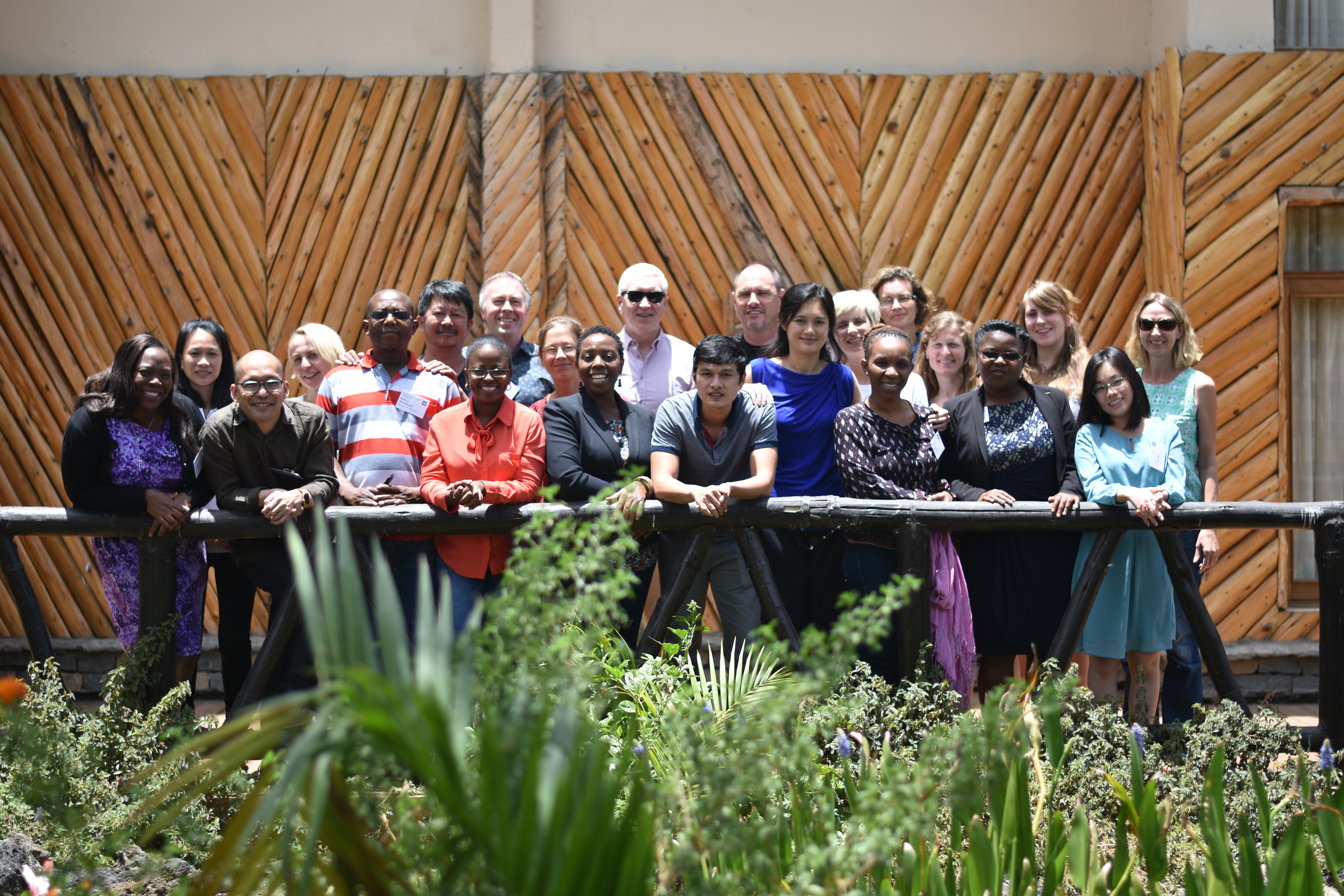Nairobi, Kenya, 9-10 March 2017
Workshop Outputs
Programme Wide Evaluation-Kenya |
|
The KEMRI-Wellcome Trust Research Programme (KWTRP) present a proposed programme of work on evaluation of the various engagement activities (public and community) that are undertaken at the KEMRI-Wellcome Trust Research Programme (KWTRP).The evaluation will include process, outcome and impact studies and follow an action research design, iteratively feeding into the engagement activities. |
Critical Realist Evaluation |
|---|
|
Public and community engagement initiatives are complex interventions with a complexity of actors, goals and other factors (social, historical, political etc.) influencing projects. This case study weaves together a presentation and discussion of Critical Realist Evaluation as a way of coping with this complexity. The case study presented here is an attempt to go beyond presentation of the theory towards thinking about its application in the context of Community Engagement in Global Health Research. |
Samala Moyo Museum Exhibition-Malawi |
| Samala Moyo (‘Care for your life’) is an interactive exhibition, which aims to engage people with health and health research that follow themes linked to the research of the Malawi-Liverpool-Wellcome Trust Research Programme (MLW). These include Malaria, TB & HIV, Non Communicable Diseases (NCD) and Microbes Immunity and Vaccines (MIV). The project has used focus group discussions, exhibition games, teacher’s evaluation forms, plenary discussions and student’s video diaries methodologies and are now thinking of using a theory of change approach. |
Science Theatre-Vietnam |
|---|
|
The Oxford University Clinical Research Unit in Vietnam (OCRU-VN) reflect on the design and impact of activities within their Science Theatre Programme with a view to bringing learning into the next iteration of work. So far the team’s evaluation approach has tended to centre on the project objectives, however, the OUCRU-Vietnam team are interested in thinking about using realist evaluation and theory of change approaches to build on this. |
Workshop Objectives
Evaluating community and public engagement (CE/PE) is complex. It involves considering the goals of the evaluation, the methods to use, what the outcomes are, the impact and how to measure it, whose perspectives are considered, and the extent of the generalisability of the findings. This complexity has led to substantial debate around the best way forward in evaluating CE/PE activity.
This workshop aimed to move forward the debates surrounding evaluation by drawing on practical experiences of conducting and documenting how evaluation of CE/PE across diverse settings is conducted, and reflecting on the theoretical and conceptual frameworks used.
The workshop was aimed at an advanced level, with focus on how evaluation is being undertaken across the Wellcome Trust Major Oversees Programmes, and other programmes, and not on the more basic elements such as what evaluation is and why evaluate. The overall goal was to explore approaches, methods, frameworks and theories used to evaluate CE/PE across diverse settings and contexts and reflect on the usefulness of these approaches in strengthening CE/PE practices by:
1. Sharing experiences and critically reflecting on the diverse approaches used to evaluate CE/PE activities and programmes including goals of evaluation, theories and methodologies used, and how findings feed into implementation of CE and policies.
2. Exploring the challenges that are faced with evaluation and how these are being addressed including methodology, interpretation of findings, generalisability, and uptake of findings.
3. Starting to build an evidence base of the effectiveness of CE/PE across different contexts (through publications of the work presented), and to build a community of practice.
Further Reading
Read a collection of blogs written by participants.
Browse the Mesh evaluation map for a detailed guide to approaches and methods of evaluating engagement.
A suite of new resources emerging from this workshop will be available soon.

